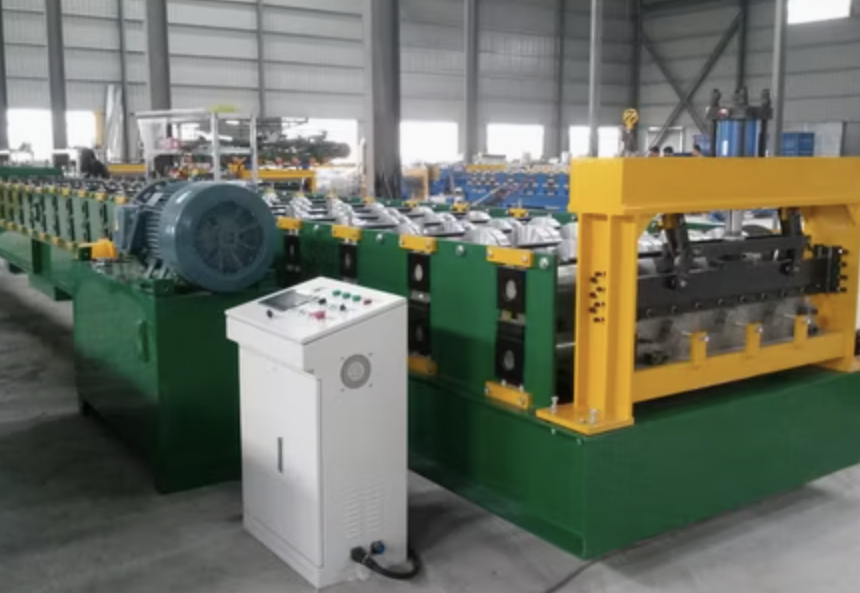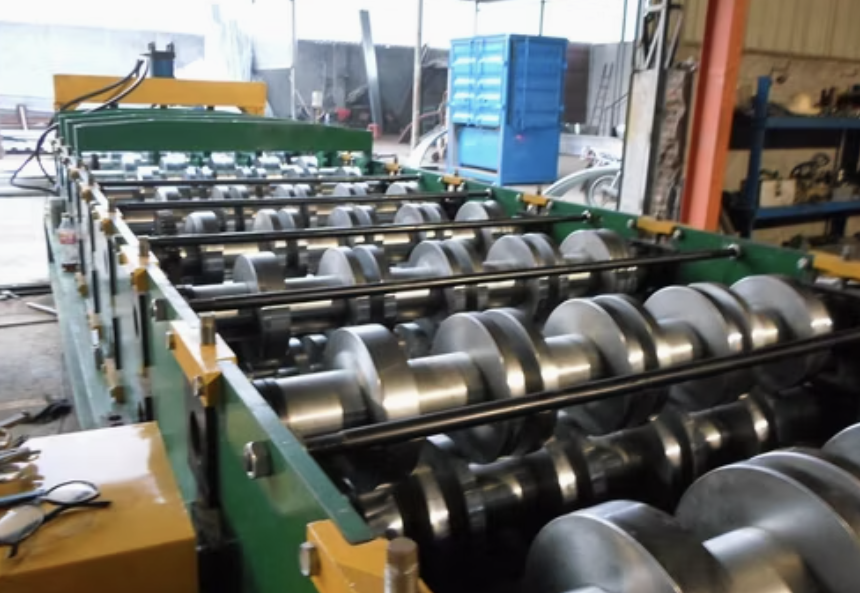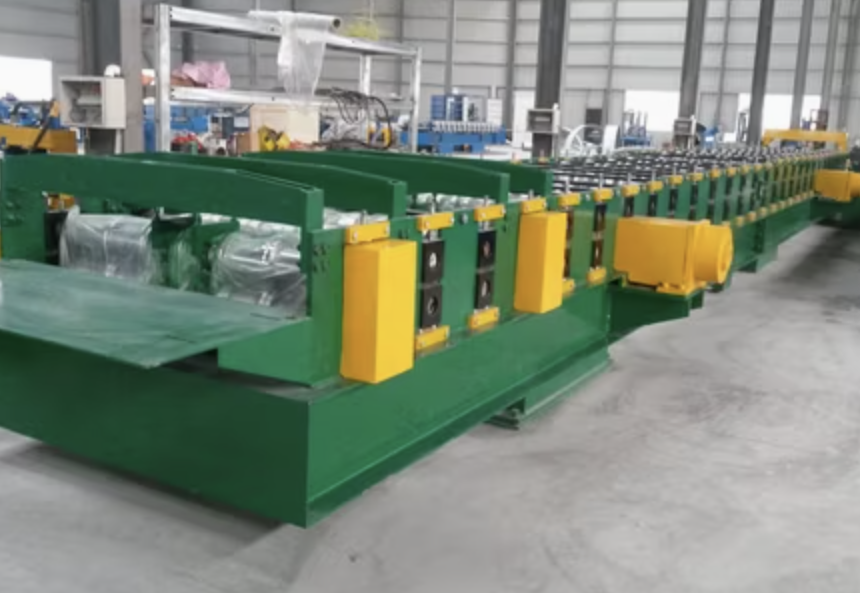To express an interest in this machine please submit the form below.

Not Sure What Machine You Need?
Select Your Profile, We'll Match It
Choose your desired profile drawing, and let Machine Matcher connect you with the best roll forming machine tailored to your needs.
Browse Profiles



A floor deck roll forming machine is specialized equipment designed to produce high-quality metal floor decking profiles. These profiles are widely used in construction, particularly in multi-story buildings, bridges, and other structural applications. Floor decking panels provide a strong foundation, often used as structural support for poured concrete, and offer enhanced durability, weight distribution, and load-bearing capacity.
Floor deck roll forming machines are equipped to handle a range of materials, such as galvanized steel, aluminum, and other high-tensile materials. The machine processes coils of metal by guiding the sheet through a series of rollers that shape it into the desired profile. The end product typically has ribs or grooves that enhance its load-carrying capacity, making it ideal for construction projects that require reinforced flooring.
Q1: What are the primary applications for floor decking profiles produced by this machine?
A1: Floor decking profiles are primarily used in the construction of multi-story buildings, mezzanine floors, bridges, and industrial structures. The decking acts as a reinforcement for concrete, providing strength, load-bearing capacity, and stability.
Q2: Can the machine handle different material types?
A2: Yes, the floor deck roll forming machine is designed to process a variety of metals, including galvanized steel, aluminum, and high-tensile steels, depending on the project's requirements. However, adjustments may be needed for specific materials, especially concerning thickness and hardness.
Q3: How long does it take to set up and install the machine?
A3: Installation and setup typically take 1 to 3 days, depending on the machine's size, additional equipment, and the experience level of the installation team. The machine requires precise alignment for optimal performance, so assistance from a technician is recommended.
Q4: What kind of maintenance is required for a floor deck roll forming machine?
A4: Regular maintenance includes lubricating the rollers, checking and tightening bolts, cleaning the machine, and inspecting the electrical components. Periodic maintenance helps ensure the machine operates smoothly, reduces wear and tear, and prevents production issues.
Q5: Can this machine be customized for different floor deck profiles?
A5: Absolutely! Floor deck roll forming machines can be customized with different roller designs and cutting systems to create various profile shapes. Customization may increase production time and costs, but it enables flexibility to meet different construction standards and requirements.
Q6: What is the average lifespan of a floor deck roll forming machine?
A6: With proper maintenance, a floor deck roll forming machine can last 10-15 years or longer. High-quality rollers, durable frame construction, and consistent maintenance routines contribute to its longevity.
Q7: Are there safety considerations for operators?
A7: Yes, the machine includes multiple safety features, such as emergency stops and safety guards, to protect operators. Operators should also wear personal protective equipment (PPE), follow machine operation guidelines, and undergo training to reduce risks.
Q8: How does the PLC system improve production efficiency?
A8: The PLC system enables automated control of production parameters such as speed, length, and batch quantity. This reduces manual intervention, minimizes errors, and allows consistent, high-quality output. The system also simplifies troubleshooting by displaying error codes for quick diagnosis.
Q9: What factors affect the pricing of a floor deck roll forming machine?
A9: The price is influenced by the machine’s production speed, thickness range, material capabilities, customization for different profiles, and additional features like stackers and remote controls. High-speed machines and models with advanced automation typically cost more.
Q10: Is shipping and installation included in the purchase?
A10: This depends on the manufacturer or supplier. Some companies offer installation and training as part of the purchase package, while others may charge extra. It’s best to clarify this with the supplier to avoid unexpected costs.
Copyright 2026 © Machine Matcher.